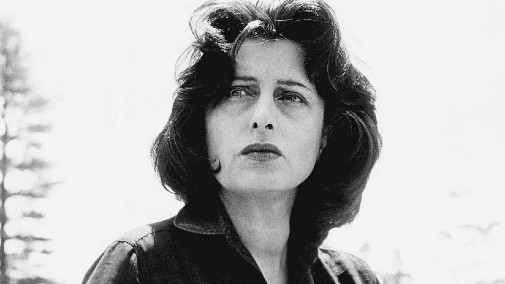
In 1957, the Italian actress Anna Magnani received her second and final Oscar nomination. She had won the Best Actress prize two years before thanks to her first Hollywood movie, the adaptation of Tennessee Williams' The Rose Tattoo, in which she gives a volcanic performance that's still considered, by many, as one of the best winners in the category's history. Still, despite such a glorious start, her career in American pictures was short-lived, encompassing only four films made between 1955 and 1969.
On one hand, Hollywood's mistreatment of a great actress is heartbreaking. On the other, Magnani's tenure in the American film industry feels right for her legacy, reflecting how one of a kind she was and how this acting titan resisted any and all attempts of assimilating her into the model of traditional stardom…
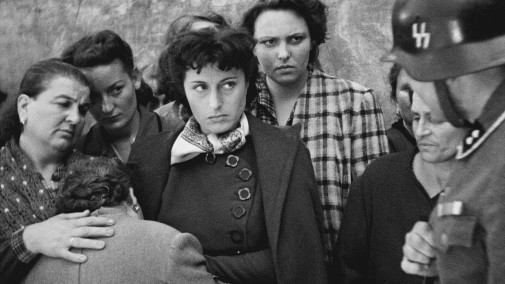
Anna Magnani's first credited film performance came in 1934 and for the first decade of her film career, the actress would earn the respect of the Italian public but little international recognition. Her acclaimed work on the stage also helped boost her reputation, though times were hard for her during the years of Mussolini's Fascist regime which the actress had no qualms about bad-mouthing. Her national fame and anti-fascistic conviction would play a part in securing the role that would change her life - Pina in Roberto Rossellini's Rome Open City.
She was one of the few professional actors in the picture's cast, but her acting style of extreme naturalism and improvisational business was at home in the neorealism the film would come to popularize and typify. As Pina, Magnani is an icon of perseverance whose final scene is among the great moments in cinema history. When, in 1946, Rome Open City premiered in New York, Locarno and Cannes before getting a worldwide release, Magnani became an international sensation. The actress even won the National Board of Review award for Best Actress while the film went on to score an Oscar nomination for Best Screenplay.
During the filming of Rome, Open City, Magnani fell in love with her director and, as the picture gained fame, so did their romance. The distribution of Italian films during the postwar years helped Anna Magnani be recognized, but it would be her involvement with Rossellini, who cheated on her with Ingrid Bergman, that truly made the Italian actress into a media darling. While it feels wrong to credit gossipy scandal for an actor's success, especially one as formidable as Magnani, it's important to understand how the love triangle of Magnani-Rossellini-Bergman helped the Italian actress acquire an American fandom.
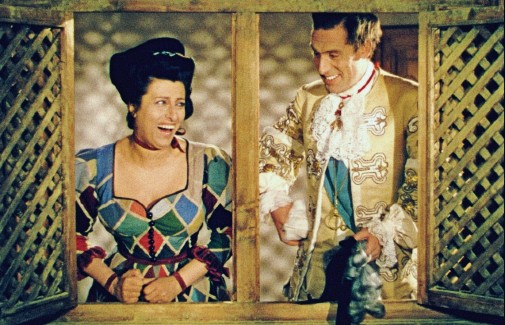
The sanctimonious public of the USA scorned the Swedish star and, at the same time, embraced Magnani as a wronged woman. Still, even as she became an unlikely household name, Magnani resisted the call of the American film industry. Reportedly, she felt insecure about her English-speaking skills and, while never confirmed, it's easy to assume she'd hesitate before trying to work in a culture that, even as it complimented her acting prowess, made constant unkind remarks about her appearance. That would change in the mid-50s, after a dedicated promotional tour for Luchino Visconti's Bellissima and a first attempt at Anglophone cinema with Jean Renoir's The Golden Coach.
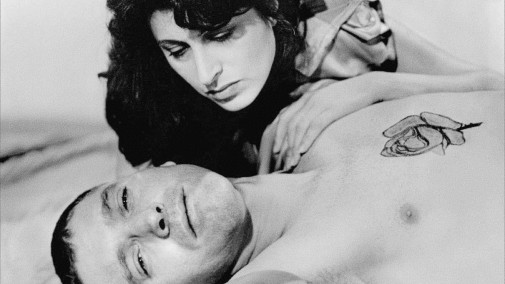
Tennessee Williams was one of Magnani's most devoted American admirers and he wrote The Rose Tattoo specifically for her. At the time of that play's stage production, Magnani declined the opportunity to play the Italian-American widow Serafina. However, when the text was adapted to the screen, the actress finally took on the part that had been created for her and was perfect in it. To watch Magnani tear through Williams' dialogues is a spectacle like few others. Even as she goes too big, there's something compelling about her, an ineffable magnetism.
Following such an amazing debut in American movies, Magnani would return to Hollywood for 1957's Wild is the Wind, directed by George Cukor and adapted both from Giovanni Verga's novel La Lupa. Considering the Italian press liked to call Magnani la Lupa (the she-wolf), it seems as if the role was as made for her as it had happened with Serafina. Still, while The Rose Tattoo tried to integrate Magnani's mercurial volatility into the language of American cinema, Wild is the Wind allows her to visibly bristle against such limitations. it almost feels like the raison d'être for the project is to make the unsure relationship between Magnani and Hollywood stardom into a sly metanarrative.
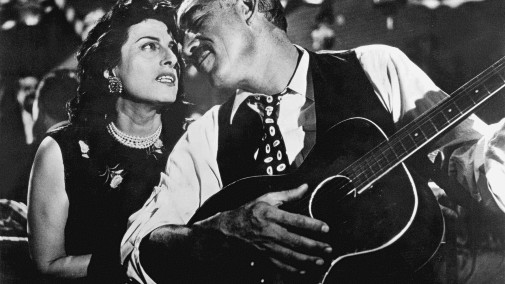
After all, Wild is the Wind is the story of Gioia, an Italian woman brought to Nevada as the wife of her dearly departed sister's American husband. Married to a man who wishes her to be a perfect demure copy of her dead sibling and confined by a culture incompatible with her fiery disposition, Gioia falls into spirals of self-destructive regret and agony, adultery and provocation. Playing a restrained, but no less bombastic, version of her usual screen persona, Magnani's naturalism is at odds with her surroundings, especially when it comes to Anthony Quinn's showboating performance as her spouse.
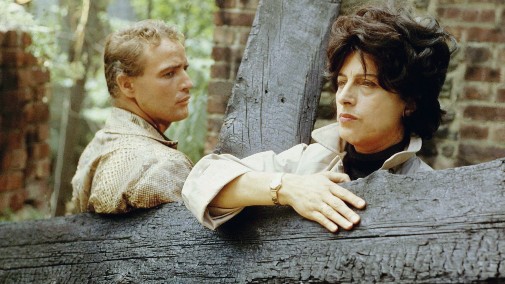
From her four Hollywood performances, Wild is the Wind is my favorite work of Anna Magnani for the way her acting style is made into the subject of the film rather than a mere part of its mechanism. That isn't to say she's bad in her other American movies. We've already talked about the wonder of The Rose Tattoo, but she's even more impressive in Sidney Lumet's The Fugitive Kind, another Tennessee Williams' adaptation that finds her sharing scenes with Marlon Brando. The younger actor was famously afraid of working with Magnani, reluctant to be overshadowed by her tempestuous talent. Still, the final result is a veritable acting masterclass.
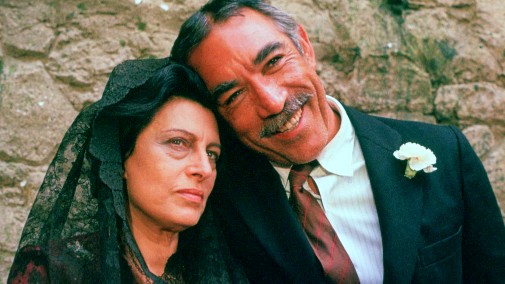
The same can't be said about her final Hollywood movie, a second collaboration with Anthony Quinn called The Secret of Santa Vittoria. The comedy about World War II and an Italian community intent on hiding their precious wine from the Nazis recalls a lot of Magnani's earlier Italian films, be it the 1930s comedies or the antifascist fervor of her late 40s work. However, while she's funny and well suited for the role of Quinn's long-suffering wife, the role is rather small, never allowing the actress to truly shine. She got a Golden Globe nomination for her troubles, but never again worked in a Hollywood production.
Four years after The Secret of Santa Vittoria, Anna Magnani died from pancreatic cancer in her beloved Rome, leaving behind a grand legacy of cinematic excellence that goes way beyond her quartet of Hollywood movies. Still, those movies are important in keeping the legend of Magnani alive and serve as a gateway to the marvel of her European work. If you loved her in The Rose Tattoo or Wild is the Wind, I recommend you search Rome, Open City, and its searing tragedy, the diptych of love gone mad that is Rossellini's L'amore, Bellissima's vision of maternal obsession and the grimy miracle of Pasolini's Mamma Roma.
If you love cinema and acting, Anna Magnani's worthy of your time and adoration.